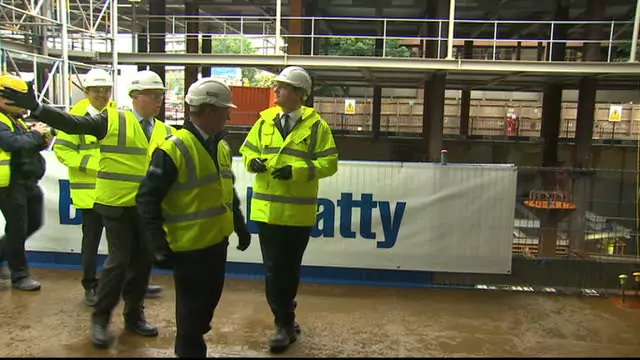
Balfour Beatty has partnered with the Institute for Government to sponsor a new report that explores how England’s metro mayors can drive urban regeneration, a critical element in achieving the government’s economic growth objectives.
Titled Devolution and Urban Regeneration: How Can Metro Mayors Transform England’s Towns and Cities, the report underscores the need for greater empowerment of mayors. This includes enabling them to create regional spatial plans, offering funding certainty, and enhancing capacity within combined authorities. These measures aim to equip mayors with the tools necessary to develop and implement long-term regeneration strategies.
The report outlines six key recommendations for metro mayors to successfully lead urban regeneration:
- Utilize the full range of mayoral tools, including investment funds, joint ventures, development corporations, and development zones, to design effective regeneration initiatives.
- Establish a clear, long-term vision for regeneration and build a coalition of support among local stakeholders and investors.
- Use their mandate to champion key regeneration projects to government bodies and private sector partners.
- Engage businesses and contractors early in the process to mitigate risks and unlock broader benefits such as creating high-skilled jobs.
- Align devolved powers across transport, housing, skills, and the environment to fully maximize regeneration efforts.
- Leverage mayoral development corporations to redevelop areas with complex land ownership challenges and attract private investment through upfront public funding.
Nick Crossfield, CEO of Balfour Beatty’s UK Construction Services business, commented: “We are proud to have contributed to this vital research as Metro Mayors and Combined Authorities take on an increasingly central role in driving growth and regeneration across the UK. The construction and infrastructure sectors will be key players in delivering the projects and expertise needed to transform regions into vibrant places to live, work, and invest.
“From our experience, involving contractors early in the process allows us to provide essential input on buildability, deliverability, and efficiency. Taking a programmatic approach—by grouping related projects together—can further drive efficiencies and deliver social value, ensuring the full impact of these transformative schemes is achieved,” Crossfield added.
Millie Mitchell, the report’s author, emphasized the significance of urban regeneration in fostering economic growth: “Metro mayors have a powerful toolkit at their disposal to lead urban regeneration. Our report highlights the importance of selecting the right approach to suit local needs. With additional support from the government, mayors can lead transformative change that revitalizes communities and drives economic progress.”
As the UK’s largest infrastructure provider and one of the government’s 40 strategic suppliers, Balfour Beatty plays a central role in developing, delivering, and maintaining critical infrastructure. With 115 years of experience and a workforce of 12,500 across the country, the company partners with government bodies, combined authorities, local councils, and private investors to deliver projects that support communities and economic growth.
Notable projects include Hinkley Point C, HS2, Net Zero Teesside, the A63 Castle Street Scheme in Hull, and Bradford’s city centre cycling and walking improvements. By financing, building, and maintaining vital infrastructure, Balfour Beatty continues to play a key role in shaping the future of the UK’s towns and cities.




